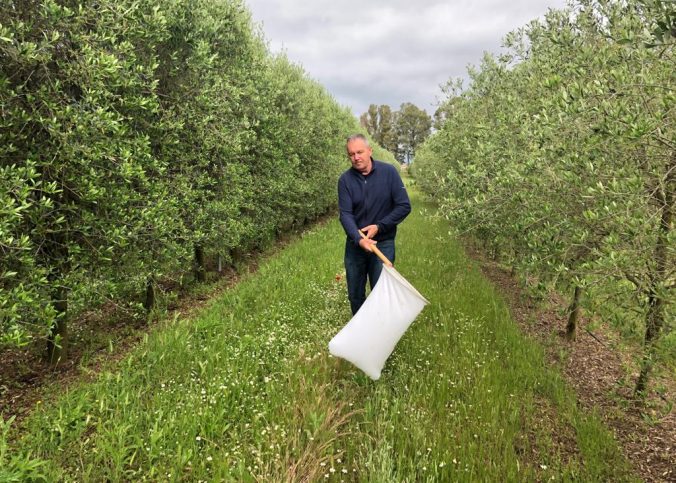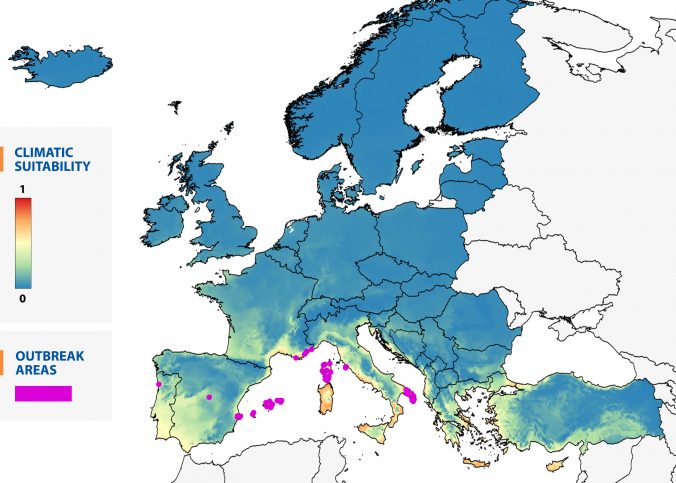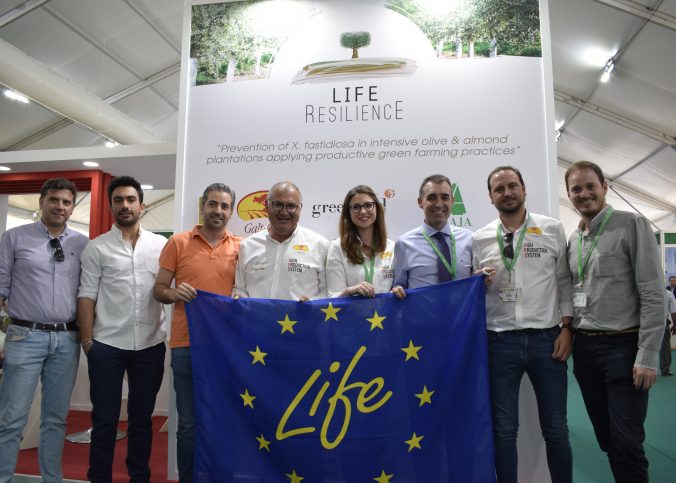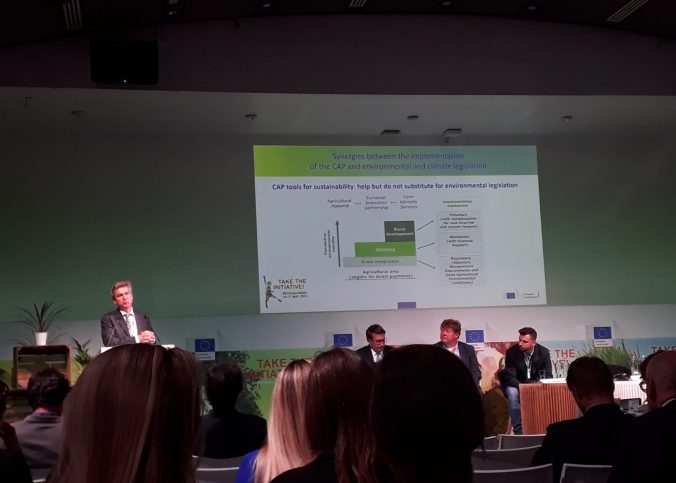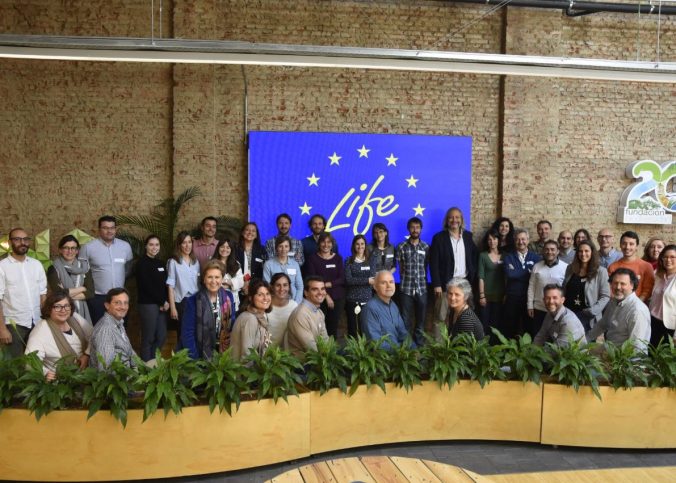Somo experts are sampling in Italy the Philaenus spumarius insect from herbaceous cover and olive trees. Adults are being captured by swepting the entomological net and are counted, identified and released. They are also obtaining wonderful results with the use…
Categoría: Noticias Resilience inglés
EFSA has updated its assessment of the risks posed by Xylella fastidiosa to plants and crops in the European Union. EFSA’s Plant Health Panel (PLH) used computer modelling to simulate how Xylella fastidiosa spreads across short and long distances under different conditions. The modelling…
The European Life Resilience project is already working with 1,050 genotypes of olive varieties to find those that are more resistant to the bacteria There is no cure for this pathogen, so efforts are focused on preventing it Life Resilience,…
Life Resilience was represented through Transfer Consultancy, an agency that is part of our team, last#EUGreenweek in Brussels. On Wednesday 15th of May, Sven Kallen attended the session «New ways to achieve environmental objectives» for LIFE projects.
IVALSA CNR is checking the nymphs and their vitality on plants after 7 days from 4 different treatments with bio-products in the Santa Paolina experimental farm located in Follonica (Tuscany). Dr. Claudio Cantini is the responsable of this demonstration farm…
In Tuscany, Italy, the vector insect of Xylella is ready to fly out of the splittles. IVALSA CNR is monitoring the number of nymphs and the action of soil coverage chopping on flying adults at La Traversagna farm.
Life Resilience has attended the 36th edition of Ovibeja, the agricultural fair that promotes food products of the Portuguese region of Alentejo. The Asociación Agricultores do Sul brings together farmers and producers to learn about new internationalization strategies and new…
On April 25th, Fundación Biodiversidad brought together 19 projects of the LIFE program on climate change in a day dedicated to sharing the experiences, achievements, challenges and obstacles that have been identified from each project. The aim of this meeting…
The EU compromise with environment began in 1992 when it created the LIFE programme. This initiative has co-financed more than 4,600 projects. Until 2013, LIFE had contributed approximately €3.1 billion to the protection of the environment and during current 2014-2020…
The LIFE Resilience project is in its implementation stage. Currently the different researchers and technicians of the project are making entomological observations of the main vector of the Xylella Fastidiosa, the Philaenus spumarius. Philaenus spumarius is the insect that causes…
